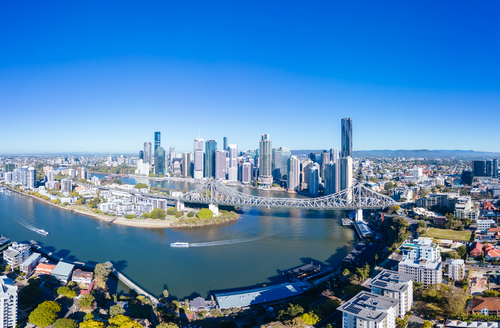6 Reasons Why A Nomination May Be Refused For Permanent Residency Visas In 2019. When Applying For A Permanent Visa (ENS 186 & RSMS 187), Both The Skilled Applicant And The Business Have Terms And Conditions That Are Required To Be Fulfilled.
The subclass 186 Employer Nomination Scheme (ENS) visa and subclass 187 Regional Sponsored Migration Scheme (RSMS) visa application process can be fraught with surprises as the processing times for this permanent resident visa can take 12 months or more to process. The RSMS option has an extra layer of scrutiny because it must also be approved by the Regional Certifying Body (RCB) when the State the application is made. Both the subclass 186 and 187 visas require an employer to nominate the applicant for the skilled occupation that is current at the time of the application.
Generally, a skilled worker does not have access to the employers commercial and confidential information that is submitted to the Department of Home Affairs. Meaning, you can be unaware of the weaknesses facing the Nomination process.
Within the ENS 186 and RSMS 187 visa’s, there are three streams that will grant the applicant a permanent visa; the Direct Entry stream, Labour Agreement stream, and the Temporary Residence Transition stream. While this article is focused on the nomination being refused due to the business, it is essential that the applicant's terms and conditions required for nomination, such as competent English, is fulfilled by the applicant.
There are 5 main reasons why an applicant for a Nomination in a subclass 186 (Employer Nomination Scheme) and subclass 187 (Regional Sponsored Migration Scheme) may receive a visa refusal:
1. Position Does Not Fit Description
The Nominated position does not fit the position description outlined in the ANZSCO or is not aligned to the business main activities.
Many businesses nominate a skilled worker when the position cannot be filled on the skilled list. Businesses will try to fit that position description to the match corresponding ANZSCO (standard classification of occupations). The issue that can arise is when the nominated position has a description that matches multiple ANZSCO and therefore the Department will take a closer look at whether the current nominated occupation closely aligns to the position. It may be advisable to obtain a skills assessment for this purpose.
2. Lack of Funding
The business financial position cannot demonstrate that it can pay for the position.
The Department may refuse a nomination if it is not satisfied with the businesses financial capacity. The nominating business may be deemed unable to meet substantial financial capacity to employ the skilled worker for the next two years; if the business has not submitted up to date financial documents. This could lead the case officer to refuse on the basis that the financial information available is out of date. If the financial information is up to date, but there has been a drop in revenue and a general downturn in the industry, this may cause concern for the Nomination. The nominated position must be able to meet the market salary requirements.
3. No Longer Operating Or New ABN
The business is no longer operating or has changed its Australian Business Number.
Business operations may change while the Nomination application is being assessed. If this happens the temporary resident may be adversely affected. Therefore, it is important that the business operator understands (and for that matter, any new business operators) the nomination requirements at the time the Nomination is made, and while the Nomination is being assessed by the Department.
Due to the complexity of certain business structures, some applicants have trouble when determining the correct name to enter when completing the application, particularly where Trusts are involved.
A Nomination can still be granted if the visa applicant has worked for associated entities. With that being said, the Department would need to be satisfied that the two entities are associated.
The business will need to prove that it is still legally operating under the same ABN at the time the Department is assessing the Nomination. For ENS and RSMS applications, the period of assessment is between 12 and 20 months. Therefore, if the business changes due to restructuring/takeover or sale – the new operators must ensure the ABN remains the same to avoid complications in the assessment process.
4. The Position Cannot Demonstrate A Genuine Need
The Nomination may be refused if the business cannot demonstrate that there is a genuine need for the skilled worker to work in the nominated position. The Nomination can be refused if the visa applicant is not currently working in the position, thus, the business would not be able to physically demonstrate that the visa applicant is required. Another risk for the Nomination to be refused is if the business is not paying statutory employee entitlements as required under the Fair Work Act.
5. The RCB Has Not Been Approved
For RSMS visas it is essential for the Regional Certifying Body (RCB) to approve that the position is required by the business operating in that particular regional area. Although the Department does not have to accept the RCB approval, the Nomination cannot proceed to a positive assessment without the RCB approved.
6. High-Risk Occupations
High-risk occupations are occupations that are scrutinized more closely than other occupations by the Department. If there is a high number of applicants for a particular occupation, it can mean longer processing times, and more requests for information with the Department wanting a higher number of supporting documents.
The following occupations have been found to be refused on the above reasons listed:
- Accountant
- Beauty Salon Manager
- Nursery Person
- Retail Manager
- Program or Project Administrator
- Restaurant Manager
Related Article: Accountants Applying for Australian Migration Face High Points Requirements - How to Increase Your Points for (RSMS 187, ENS 186), (189, 489), and State Nomination (190) Skilled Visas
Do You Need Help With An Australian Visa Application?
At Work Visa Lawyers our team of Migration Agents and Immigration Lawyers are experienced in assisting applicants in all matters relating to Australian visa applications, including state sponsorship applications. Our areas of expertise include Skilled Migration visas, Business Skills Migration visas, Employer-Sponsored Work Visas, Partner, and other Family Migration visas as well as Migration Review Tribunal, Judicial Review and Ministerial Intervention.
If you require further information regarding your Australia visa options you can contact us through:
(08) 8351 9956
or This email address is being protected from spambots. You need JavaScript enabled to view it.









